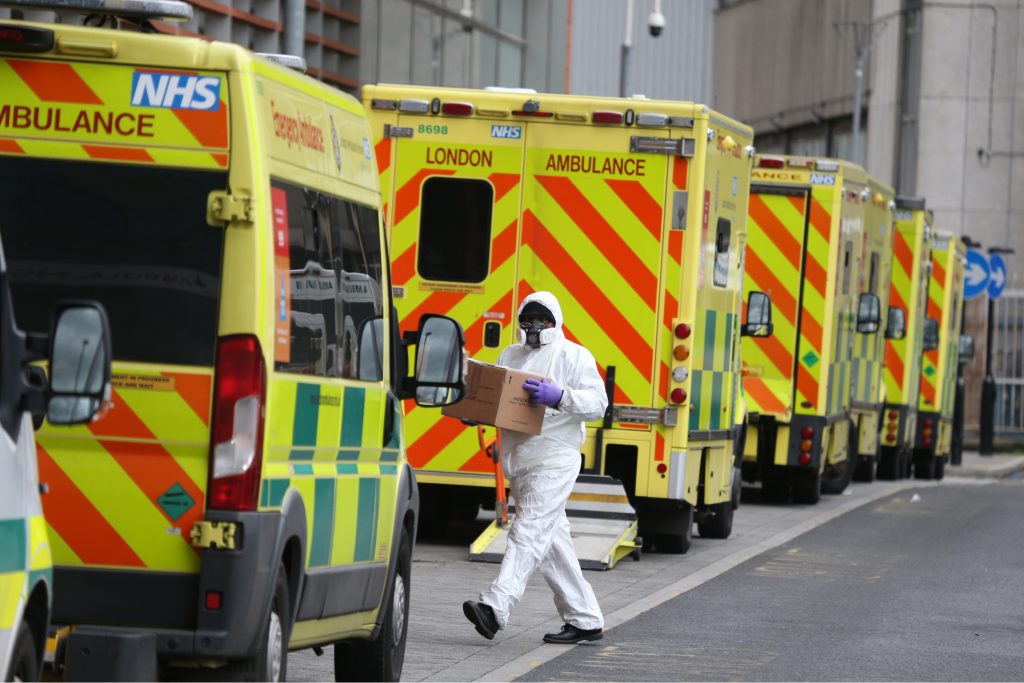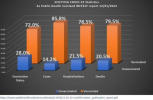First, the bad news.
The Supreme Court has upheld the vaccination requirement for health-care workers as a condition for receiving Medicare and Medicaid funds.
Opinions like this one are maddening to read, because they confine themselves to questions such as whether the Secretary of Health and Human Services exceeded his congressionally granted authority when imposing this requirement. The Court then proceeds to explain that the Secretary has been understood to enjoy a very broad authority when it comes to imposing requirements regarding the administration of Medicare and Medicaid.
Not considered is where the federal government's authority to intervene in matters involving health, whether or not given statutory expression by Congress or delegated to a health bureaucrat, derives from or how it can be justified.
Perhaps this ruling will lead to further growth in direct primary care practices, which accept neither Medicare nor Medicaid, nor even traditional insurance. That is another question.
The good news is very good: the OSHA vaccine mandate for employees of businesses with 100 or more workers has been blocked.
Such a measure, the Court says, constitutes a vast overreach by OSHA into the more general field of public health, where it has not been granted authority.
It would have been nicer to hear an opinion based on the nature of what was being demanded as opposed to whether the institution doing the demanding was the correct one.
But I'll take what I can get.
I pulled out some relevant passages from the opinion of the Court:
"Although COVID– 19 is a risk that occurs in many workplaces, it is not an occupational hazard in most. COVID–19 can and does spread at home, in schools, during sporting events, and everywhere else that people gather. That kind of universal risk is no different from the day-to-day dangers that all face from crime, air pollution, or any number of communicable diseases. Permitting OSHA to regulate the hazards of daily life—simply because most Americans have jobs and face those same risks while on the clock—would significantly expand OSHA’s regulatory authority without clear congressional authorization....
"OSHA’s indiscriminate approach fails to account for this crucial distinction— between occupational risk and risk more generally—and accordingly the mandate takes on the character of a general public health measure, rather than an 'occupational safety or health standard....'
Justice Gorsuch concurred with the Court, and was joined by Justices Thomas and Alito in a concurring opinion from which I draw the following passages (internal footnotes omitted):
"I start with this Court’s precedents. There is no question that state and local authorities possess considerable power to regulate public health. They enjoy the 'general power of governing,' including all sovereign powers envisioned by the Constitution and not specifically vested in the federal government.
"The federal government’s powers, however, are not general but limited and divided. Not only must the federal government properly invoke a constitutionally enumerated source of authority to regulate in this area or any other. It must also act consistently with the Constitution’s separation of powers. And when it comes to that obligation, this Court has established at least one firm rule: 'We expect Congress to speak clearly' if it wishes to assign to an executive agency decisions 'of vast economic and political significance.' We sometimes call this the major questions doctrine. OSHA’s mandate fails that doctrine’s test. The agency claims the power to force 84 million Americans to receive a vaccine or undergo regular testing. By any measure, that is a claim of power to resolve a question of vast national significance. Yet Congress has nowhere clearly assigned so much power to OSHA....
"The question before us is not how to respond to the pandemic, but who holds the power to do so. The answer is clear: Under the law as it stands today, that power rests with the States and Congress, not OSHA. In saying this much, we do not impugn the intentions behind the agency’s mandate. Instead, we only discharge our duty to enforce the law’s demands when it comes to the question who may govern the lives of 84 million Americans. Respecting those demands may be trying in times of stress. But if this Court were to abide them only in more tranquil conditions, declarations of emergencies would never end and the liberties our Constitution’s separation of powers seeks to preserve would amount to little."
This does not solve all problems, obviously. Some private entities will persist in vaccine mandates despite their injustice, irrationality, and general uselessness. Other problems, like vaccine passports, are occurring at the local level and must be dealt with at the local level -- though we can hope they will resolve themselves as they destroy business and tourism.
But it is a start.





